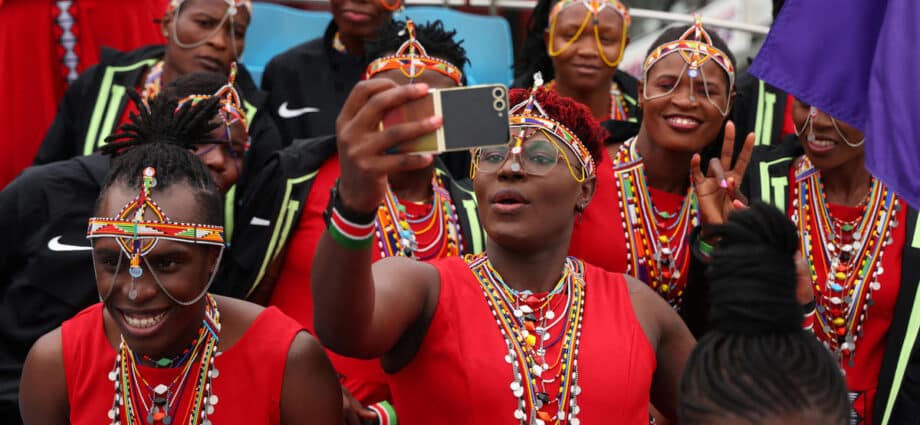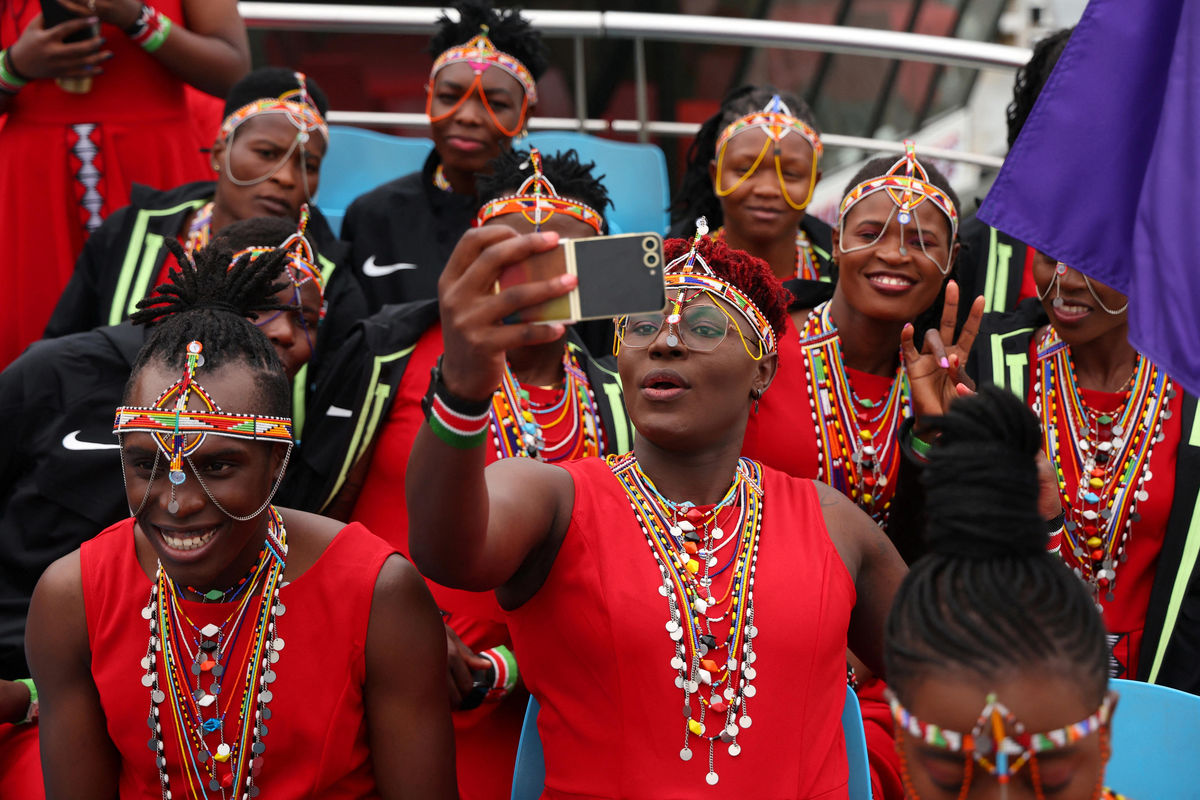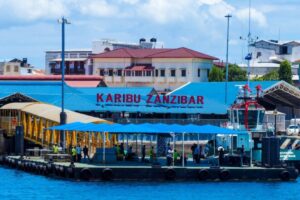An article in the wonderfully quirky Lithuanian art and pop culture magazine Bored Panda, just gave a thumbs up to the uniforms that Kenya’s and South Sudan’s 2024 Olympics teams wore at the weekend opening ceremony in Paris.
The entertaining Bored Panda, which has 100 million unique visitors a month, rated Kenya’s uniform as the second best, and South Sudan’s as the third best. The Sierra Leoneans also got a look in for their uniform, with the authors placing them fifth. Further down, the Egyptians came in 20th.
In common, all the uniforms were created by African designers. Team Kenya’s attire, stunning Maasai-inspired kits, was designed by Nairobi fashion brand Kovu Couture. South Sudan’s uniform was designed by Rwandan fashion house Moshions. British African heritage brand Labrum, founded by Sierra Leonean Foday Dumbuya, designed Team Sierra Leone’s uniforms; and Concrete, a menswear fashion brand based in Egypt, designed Team Egypt’s uniforms.
In the varied world of East African aesthetics, Kovu Couture and Moshions moved in both opposite and the same directions with their designs. Kovu Couture started today and moved back into tradition. It said its design was, “celebrating the vibrant colours, traditions, and stories that make our country unique”. Moshions, known for its avant-garde and experimental approach to fashion, harnessed traditional themes and took a look into the future.
In the end, both paid homage to African tradition. There was a time when African designers didn’t get such pride of place. African teams at the Olympics – and Commonwealth Games – looked largely the same; in western suits, ties, and sun hats for men.
Considered heathen
Maasai beads would not only have been considered heathen, but no one would have thought of them. Rwanda’s Imigongo traditional art which Moshion channels employed, was nearly wiped out in the 1994 genocide against the Tutsi and has only bounced back in the last two decades thanks to a women’s cooperative in the eastern part of the country which revived it.
These creative movements, therefore, speak volumes about how Africans see themselves – more vividly as more connected to our history – and at a visceral level, a determination not to disappear.
It has, therefore, been interesting to watch the regionalisation of Maasai art, together with its commercialisation, which has been a longer-running global phenomenon.
The Maasai blanket, beads, bracelets and earrings have been at the centre of this diffusion. Not too long ago while travelling in the northern Uganda towns of Lira, and further northwest in Arua near the border with the Democratic Republic of Congo, I encountered itinerant hawkers of Masaai wares and art. It was impressive how far they had travelled from home.
Today many African women – including those in the Diaspora – especially those who consider themselves pan-Africanist and progressive, have to pay homage to Maasai culture to look complete. Look at their photographs on Instagram, Facebook, and X (Twitter) and there it will be – the photograph with the Maasai headband, or necklace. You are a courageous woman receiving an international award for saving a forest, rescuing young girls from human traffickers, or returning wayward boys to society? Then you show up in London or New York to receive it in a kitenge dress, and Maasai beads around the neck or forehead, otherwise you are “naked”.
Why this contemporary love affair with the cultural riches of the Maa people? The author Karen Blixen famously (or better infamously) wrote that “A Maasai warrior is a fine sight. Those young men have, to the utmost extent, that particular form of intelligence which we call chic; daring and wildly fantastical as they seem, they are still unswervingly true to their own nature, and to an [inherent] ideal. Their style is not an assumed manner, nor an imitation of a foreign perfection; it has grown from the inside and is an expression of the race and its history, and their weapons and finery are as much a part of their being as are a stag’s antlers.”
Population census
The Maasai are a Kenyan and Tanzanian people. Because the “anti-tribal” Tanzanians don’t include ethnicity in the population census, their population is estimated to be between 430,000 and 500,000. In Kenya, the Maasai population was reported as numbering 1,189,522 in the 2019 census, so they should be nearing two million.
Colonialists in Kenya and Tanzania made life hard for the Maasai. They introduced diseases like syphilis to reduce the Maasai population and East Coast Fever to decimate their cattle herds.
These weakened the Maasai and made it easier to push them out of their traditional grazing lands to make way for settler communities and wildlife reserves.
The Maasai have been beaten, harassed, and even killed by police and the army. Since 2009 in Tanzania, they have been subjected to excessive use of force, arbitrary arrests and detentions, and forced evictions in the Ngorongoro area.
In Kenya, they have been ravaged by drought and famine, and their herds nearly wiped out. But they have managed to maintain their culture and way of life through all the obstacles. Few African people have so stubbornly refused to die.
Who wouldn’t want a piece of that?
The author is a journalist, writer, and curator of the “Wall of Great Africans”. Twitter@cobbo3















